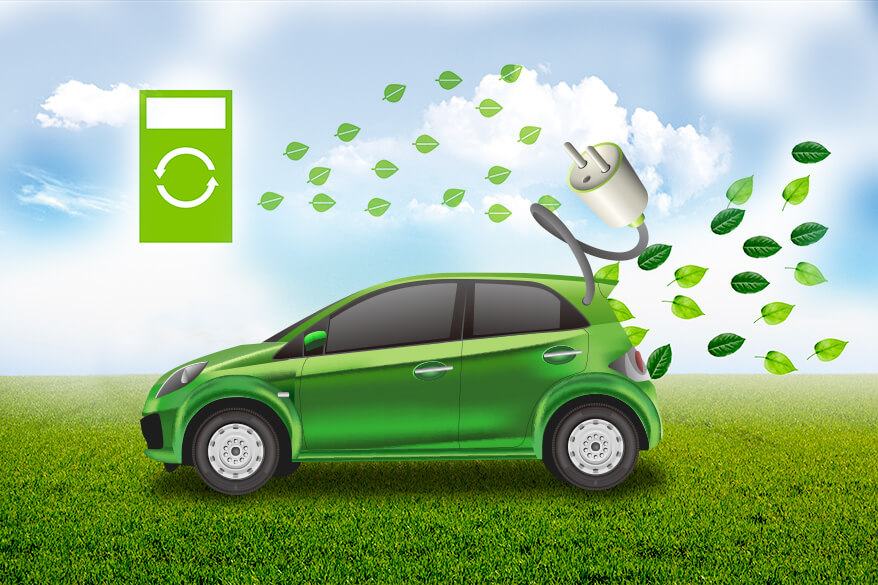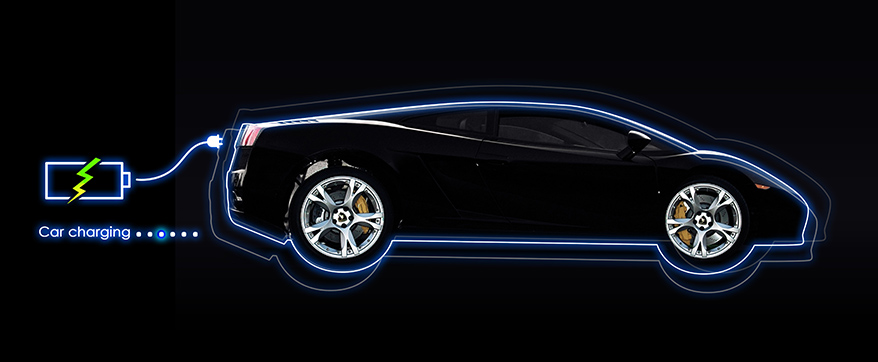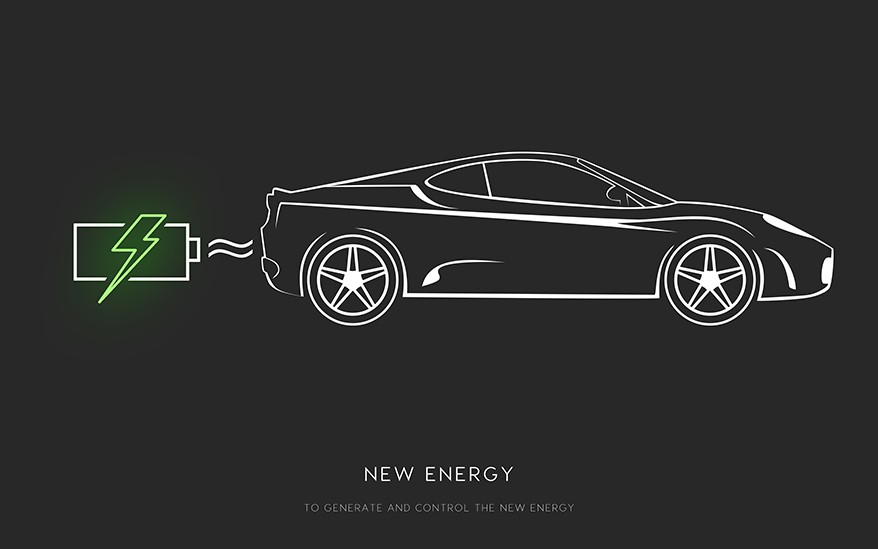Lithium Ion batteries for electric cars
May 17, 2019 Pageview:1515
How far the development in the automobile industry has gone cannot be fathomed by anyone. No one could imagine we may have what we are seeing in the world today. Every machine that comes out has great specifications and mechanisms that make it unique.
And in all, electric cars have become the talk of town. They are not only eco-friendly but come with great efficiency as well. Simply known as EVs, the vehicle are a solution to pollution and easy access to motto vehicles.
But EVs depend on strong batteries. As they need to be charged to perform, not any type of battery may have the capacity to push them forward. This is why manufacturer have been tooling up for electric vehicle. The world adoption seems to be slow but sure, especially in the developed countries.
There are several contenders fighting for the top position for manufacturers. Lithium-ion continues to stand as the favorite choice for many.
They batteries most commonly used in laptops and other electronics. This is perhaps one of the reasons they are quite popular. They recently joined the automobile industry to provide rechargeable batteries of EVs and they are making an impact.

History of lithium ion batteries
The batteries have one of the longest histories. Traditionally, they contained a lithium cobalt oxide cathode and a graphite anode. In terms of power yield, they are considered great for the time. They gave out 200+ kWh/Kg specific energy which is was quite impressive. In addition, they came with a high power. The efficiency level ranged from80 to 90 percent charge/discharge.
One of the biggest issues of these original batteries was the short lifespan. One would be forced to change the batteries, which were and still are quite costly, after only a few miles. There degradation level was very high and that is the last thing you want to see an EV.
Apart from that, they contained a toxic substance in the cathode. That meant they were generally not safe to be left around human beings. And since they were a high threat under heat, moreso when they leaked, they were not worth the effort.
As if that is not enough, they had issues when extremely cold. It was impossible for the cells to supply charge. In such a case one needed to have heaters.
But all that is in the past as manufacturers have stepped up their game. The US government raised an alarm on the health threats that come with Li-ion batteries, forcing some changes to be made. And today, you can enjoy these powerful batteries in your car.
Modern ones are focused on new variations. In these new chemistry specific energy and power has been sacrificed. Instead, they have focused on fire resistance, eco-friendliness, quick charge and extended lifespan. Generally, the new batteries are more reliable and functional.
If you are driving and electric vehicle, you need to buy a battery that has these basic features. The main aim of using electric cars is to try and prevent pollution in the environment. That is why the new Li-ion batteries are great.

Electric vehicle battery specifications
Buying an electric vehicle battery requires one to have some knowledge of the modifications coming up. You need to understand the specification find in the batteries. These features vary widely depending on the manufacturer and can be very complex.
But you don’t need to go into the deep chemistry. They have simple mechanical and electrical features you can get to. These components create the whole system to help in the performance of the park.
Here are a few basic things that made these batteries unique.
· Their chemistry. The most important components on such batteries are the discrete cells. The cells interconnected to in series and parallel modes. This gives them the power to provide the necessary voltage and current to power the pack. There could be hundreds of individual cell in a single park.
· Modules. Manufacturing and assembly of EV car batteries is not easy. To make things less stressful, large stacks of cell are further grouped into modules. A few modules can be put together as well to make a pack. Then the cells inside the modules are stuck to each other by welding. This completes the current flow making each part of the car get power as required.
· The battery management system. Sometimes the cells can produce low or too much power. To make sure this never happens, the modules allow for monitoring of the voltage through BMS.
· The fuse. We all know the functions of a fuse. It has the same function here in which the limit the current flow in case of a short circuit.
· Contactors. Inside the battery pack are also the contactors. They ensure proper distribution of power to the output terminals.
· A variety of temperature, voltage and current sensors. These components are responsible for collecting data and sending to relevant areas.
BEV batteries require charging from time to time. They run out of power just like normal car run out of fuel. A strong battery takes longer to be depleted than a weak one.
Electric vehicle battery capacity comparison
Batteries in electric vehicles are designed to last for a long time. But degradation for rechargeable batteries is inevitable. They degrade at different speeds depending on capacity, usage and other factors.
EV batteries vary in terms of capacity and price. Here are the different capacities for Li-ion batteries.
· Renault Twizzy – capacity 6.1kWh – power: 4kW/5CP
· Hyundai Ioniq- 28kWh – power: 88kW/118CP
· Nissan Leaf – 30kWh – power: 80kW/107CP
· VW E-Golf – 24.2kWh – power: 100kWh/136CP
· Tesla Model S - !00kWh – power: 193kWh/259CP

Electric car battery manufacturers
There is a long list of EV battery manufacturers in the world today. But the top ones include:
· A123 systems. It was founded in 2001 and manufactures Li-ion batteries for different models including Mercedes-Benz high performance engines.
· AESC. Founded in 200, the company produces Li-ion batteries for Nissan vehicles.
· Altairnano. It manufactures lithium titanate batteries since 1973.
· Axeon. lithium iron phosphate batteries for Rolls-Royce motor cars, modec, Landrover, Jaguar among others.
· Blue energy limited (2009). Manufactures Li-ion batteries for joint venture of GS Yuasa and Honda.
There is no doubt EVs are changing the world. People have managed to enjoy the benefits generated from the environmental friendly automobile. But the batteries play a bigger part in their performance.
- Prev Article: How to peel a lithium battery?
- Next Article: How to Charge Lipo Batteries Properly?
Leave Message
Hottest Categories
-
Hottest Industry News
-
Latest Industry News









